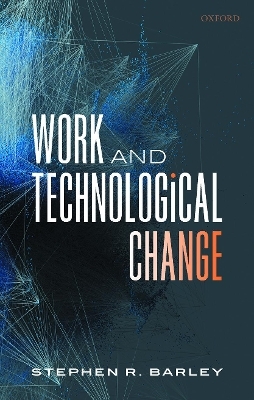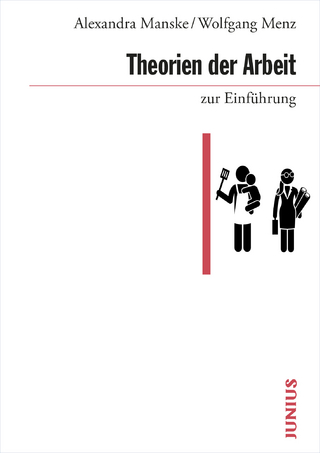
Work and Technological Change
Oxford University Press (Verlag)
978-0-19-879520-9 (ISBN)
In recent years a growing number of commentators have declared that we are at the beginning of a technical revolution that will see profound changes in the way we live and work. Yet what constitutes a technological revolution, and what logic supports how successive technological revolutions have unfolded in Western societies? How do technologies change organizations and what are the implications of intelligent technologies for work and employment?
Here, Stephen R. Barley reflects on over three decades of research to explore both the history of technological change and the approaches used to investigate how technologies are shaping our work and organizations. He begins by placing current developments in artificial intelligence into the historical context of previous technological revolutions, drawing on William Faunce's argument that the history of technology is one of progressive automation of the four components of any production system: energy, transformation, transfer, and control technologies. He then considers how technologies change work, and when those changes will and will not result in organizational change. In doing so he lays out a role-based theory of how technologies produce changes in organizations. He then tackles the issue, alongside Matt Beane, of how to conceptualize a more thorough approach to assessing how intelligent technologies, such as artificial intelligence, can shape work and employment. They identify the main reasons why the current state of research on intelligent technologies in the workplace is inadequate, and provide pointers on how empirical studies in this area may, and must, be improved. He concludes with a discussion with his long-time colleague Diane Bailey about the fears that arise when one sets out to study technical work and technical workers, and the methods that they, and future ethnographers, can use for controlling those fears.
Stephen R. Barley is the Christian A. Felipe Professor of Technology Management in the College of Engineering at the University of California Santa Barbara. He is also the Richard Weiland Emeritus Professor of Management Science and Engineering at Stanford University. He co-founded and co-directed the Center for Work, Technology and Organization at Stanford's School of Engineering from 1994-2015. He was editor of Administrative Science Quarterly from 1993 to 1997 and the founding editor of the Stanford Social Innovation Review.
1: What is a Technological Revolution?
2: How Do Technologies Change Organizations?
3: Stephen R. Barley and Matt Beane: How Should We Study Intelligent Technologies' Implications for Work and Employment?
4: Stephen R. Barley and Diane Bailey: Managing the Fears of Studying Technical Work
| Erscheinungsdatum | 15.10.2020 |
|---|---|
| Reihe/Serie | Clarendon Lectures in Management Studies |
| Verlagsort | Oxford |
| Sprache | englisch |
| Maße | 147 x 223 mm |
| Gewicht | 348 g |
| Themenwelt | Sozialwissenschaften ► Soziologie ► Mikrosoziologie |
| Wirtschaft ► Betriebswirtschaft / Management ► Planung / Organisation | |
| Wirtschaft ► Betriebswirtschaft / Management ► Unternehmensführung / Management | |
| ISBN-10 | 0-19-879520-3 / 0198795203 |
| ISBN-13 | 978-0-19-879520-9 / 9780198795209 |
| Zustand | Neuware |
| Haben Sie eine Frage zum Produkt? |
aus dem Bereich


